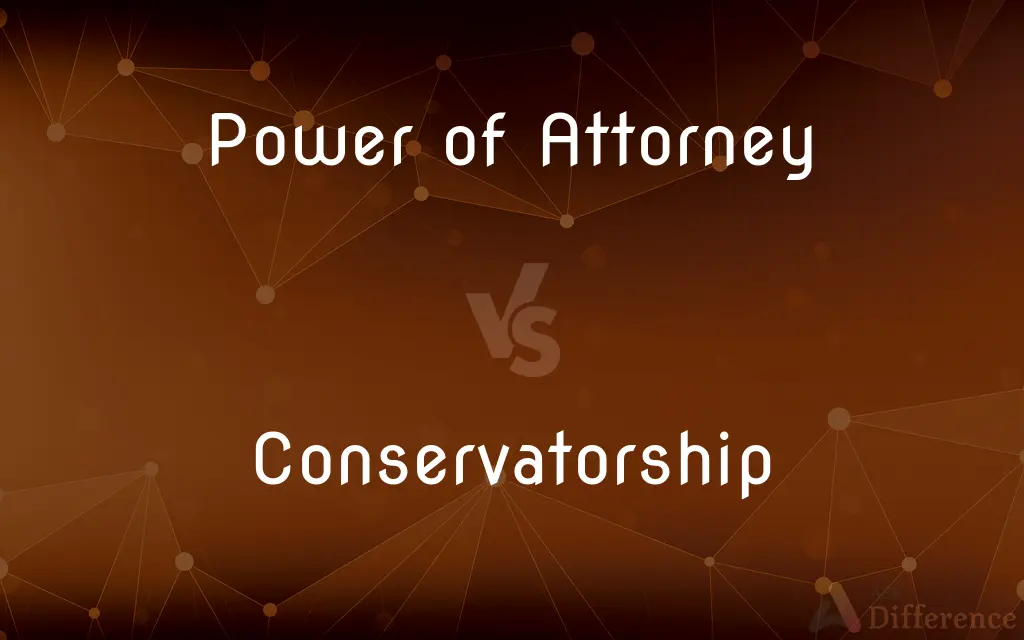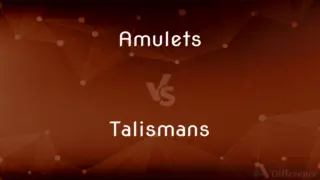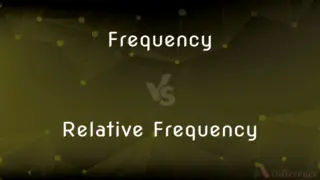Power of Attorney vs. Conservatorship — What's the Difference?
By Maham Liaqat & Urooj Arif — Published on March 1, 2024
A Power of Attorney (POA) is a legal document granting one person the authority to act for another, while conservatorship involves a court appointing a guardian to manage the affairs of someone incapable of doing so themselves.

Difference Between Power of Attorney and Conservatorship
Table of Contents
ADVERTISEMENT
Key Differences
A Power of Attorney is a legal mechanism where an individual, known as the principal, grants another person, known as the agent or attorney-in-fact, the authority to make decisions on their behalf. This can cover a wide range of matters, including financial, legal, and health-related decisions. The scope of the POA can be broad or limited, and it can take effect immediately or be activated by certain conditions, such as the principal's incapacitation. The principal must be mentally competent at the time of signing a POA.
Conservatorship, on the other hand, is a court-ordered arrangement in which a judge appoints a conservator or guardian to manage the personal and/or financial affairs of an individual deemed incapable of doing so themselves due to mental disability, illness, or other reasons. Conservatorship is generally considered when the individual does not have a POA in place and is unable to manage their affairs. This process is often more intrusive than a POA, as it requires court involvement and the conservator is usually required to report to the court regarding the management of the individual's affairs.
Both POA and conservatorship are legal tools designed to assist individuals in managing their affairs, but they originate from different circumstances. A POA is proactive, allowing the individual to choose their agent and specify the powers granted. Conservatorship is reactive, implemented when an individual is already incapable and has not designated someone to act on their behalf.
The POA ends when the principal dies or revokes the power granted, assuming they are competent to do so. Conservatorship, however, can be more permanent, often lasting until the conservatee's death or until the court decides it is no longer necessary, based on evidence of the individual's regained capacity to manage their own affairs.
The choice between establishing a POA and seeking conservatorship involves considering the individual's current mental capacity, their wishes and preferences, and the necessity of court oversight. While a POA offers a flexible and less intrusive means of managing one's affairs through a trusted agent, conservatorship provides a court-supervised option for those who are no longer able to make decisions for themselves and have not arranged for an alternative.
ADVERTISEMENT
Comparison Chart
Definition
A document granting someone authority to act on another's behalf.
A court-ordered role where someone manages another's affairs.
Initiation
Created by the principal while competent.
Appointed by a court when an individual is deemed incapable.
Scope
Can be broad or limited, specified by the principal.
Determined by the court, based on the needs of the conservatee.
Activation
Can take effect immediately or upon certain conditions.
Takes effect upon court appointment.
Oversight
Generally none, but can be specified within the document.
Court supervision and regular reporting required.
Principal/Conservatee's Role
Chooses the agent and the scope of their powers.
Does not choose the conservator; determined by the court.
Legal Capacity Required
Must be mentally competent to create.
Not required; conservatorship is for those lacking capacity.
Compare with Definitions
Power of Attorney
Ends with the principal's death or revocation.
The Power of Attorney was revoked when he regained health.
Conservatorship
Court-appointed management of someone's affairs.
The court established a conservatorship for the elderly woman with dementia.
Power of Attorney
Activates based on the principal's conditions.
The Power of Attorney activated when she was medically incapacitated.
Conservatorship
Initiated when someone can't make decisions themselves.
Without a Power of Attorney, his family sought conservatorship due to his incapacity.
Power of Attorney
Created voluntarily by the individual.
Before her surgery, she created a Power of Attorney naming her spouse as her agent.
Conservatorship
Involves legal and personal decision-making.
The conservator decided on her living arrangements and managed her assets.
Power of Attorney
Can specify financial, health, or general decisions.
His durable Power of Attorney included decisions about healthcare.
Conservatorship
Lasts until the court deems it unnecessary.
The conservatorship ended when evidence showed she could manage her own affairs.
Power of Attorney
Legal authority granted to act on someone's behalf.
She gave her brother a Power of Attorney to manage her finances while she was abroad.
Conservatorship
Requires court oversight and reporting.
As a conservator, he filed annual reports on the estate's status to the court.
Conservatorship
A person in charge of maintaining or restoring valuable items, as in a museum or library.
Conservatorship
(Law) One placed in charge of the property or personal affairs of an incompetent person.
Conservatorship
(legal) The legal status of a conservator, similar to guardianship or trusteeship.
Conservatorship
(legal) The state of being under the control of a conservator.
Common Curiosities
Can a Power of Attorney be abused?
Yes, like any legal authority, it can be misused. Choosing a trusted agent and specifying powers and oversight can mitigate this risk.
Who can be appointed as an agent or conservator?
An agent under a POA can be anyone the principal trusts, typically a family member or close friend. A conservator is often a family member but can also be a professional guardian appointed by the court.
What are the legal requirements for creating a Power of Attorney?
Requirements vary by jurisdiction but generally include the principal's legal capacity, a written document, and often notarization.
Does having a Power of Attorney (POA) prevent the need for a conservatorship?
Often, yes. A comprehensive POA can eliminate the need for a conservatorship by ensuring there's already a trusted person appointed to manage affairs if the principal becomes incapacitated.
What happens if there's a disagreement about the decisions made by an agent under a POA or a conservator?
Disputes can be resolved through legal challenges in court, where a judge may review the actions of the agent or conservator for compliance with the law and the principal's or conservatee's best interests.
What's the difference between a durable Power of Attorney and a regular one?
A durable Power of Attorney remains in effect if the principal becomes incapacitated, whereas a regular one may not.
Is conservatorship only for the elderly?
No, it can be for anyone who is incapacitated due to various reasons, including illness, injury, or developmental disability.
Can you have both a Power of Attorney and a conservatorship?
Yes, in some cases, a conservatorship might manage certain aspects not covered by a POA, or a POA may exist but not adequately address the individual's needs, necessitating a conservatorship.
How do I choose the right type of Power of Attorney?
Consider the specific needs and circumstances, such as the type of decisions to be made and when the POA should take effect. Consulting with a legal professional can help in making an informed decision.
Can a POA be changed or revoked once it's been established?
Yes, as long as the principal is mentally competent, they can revoke or amend their POA at any time.
How are conservators held accountable for their actions?
Conservators must regularly report to the court about their management of the conservatee's affairs, and they may be subject to court review and audit. Mismanagement can lead to removal and legal penalties.
Can a conservator make medical decisions for the conservatee?
Yes, if the conservatorship includes authority over healthcare decisions. However, this must be specified in the court order establishing the conservatorship.
What's the process for establishing a conservatorship?
The process involves filing a petition in court, providing evidence of the individual's incapacity, and a court hearing where a judge decides whether a conservatorship is necessary and, if so, appoints a conservator.
Is a medical evaluation required for a conservatorship?
Typically, yes. Medical evidence of the individual's incapacity is usually required to establish a conservatorship, including testimony or reports from qualified healthcare professionals.
Share Your Discovery

Previous Comparison
Amulets vs. Talismans
Next Comparison
Frequency vs. Relative FrequencyAuthor Spotlight
Written by
Maham LiaqatCo-written by
Urooj ArifUrooj is a skilled content writer at Ask Difference, known for her exceptional ability to simplify complex topics into engaging and informative content. With a passion for research and a flair for clear, concise writing, she consistently delivers articles that resonate with our diverse audience.
















































